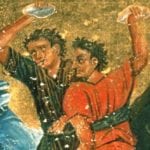 Movies and TV
Movies and TV  Movies and TV
Movies and TV  History
History 10 Momentous Events That Also Occurred on July 4th
 Animals
Animals 10 Times Desperate Animals Asked People for Help… and Got It
 Movies and TV
Movies and TV 10 Movie Flops That Found Their Way to Cult Classic Status
 History
History 10 Things You Never Knew About Presidential First Ladies
 Movies and TV
Movies and TV 10 Zombie Movies That Will Actually Terrify You
 Humans
Humans 10 Times Scientists Were Absolutely Sure… and Absolutely Wrong
 Our World
Our World 10 Pivotal Moments for Life on Earth
 Movies and TV
Movies and TV 10 Most Realistic Medical TV Shows of All Time
 Creepy
Creepy 10 Eerie & Mysterious Ghosts of the Pacific Coast
 Movies and TV
Movies and TV 10 Music Biopics That Actually Got It Right
 History
History 10 Momentous Events That Also Occurred on July 4th
 Animals
Animals 10 Times Desperate Animals Asked People for Help… and Got It
Who's Behind Listverse?

Jamie Frater
Head Editor
Jamie founded Listverse due to an insatiable desire to share fascinating, obscure, and bizarre facts. He has been a guest speaker on numerous national radio and television stations and is a five time published author.
More About Us Movies and TV
Movies and TV 10 Movie Flops That Found Their Way to Cult Classic Status
 History
History 10 Things You Never Knew About Presidential First Ladies
 Movies and TV
Movies and TV 10 Zombie Movies That Will Actually Terrify You
 Humans
Humans 10 Times Scientists Were Absolutely Sure… and Absolutely Wrong
 Our World
Our World 10 Pivotal Moments for Life on Earth
 Movies and TV
Movies and TV 10 Most Realistic Medical TV Shows of All Time
 Creepy
Creepy 10 Eerie & Mysterious Ghosts of the Pacific Coast
Top 10 Christian Holidays Even Atheists Celebrate
Christianity has given us heaps of holidays every year, which is not surprising considering it has been around for more than 2,000 years. Even as society has become more secular, the Christian feast days persist in our lives. This list looks at ten Christian holidays that – with the exception of a few – most people reading this list will have celebrated or does still celebrate – Christian or not. Granted a few of these are not likely to be celebrated by American readers, but many are.
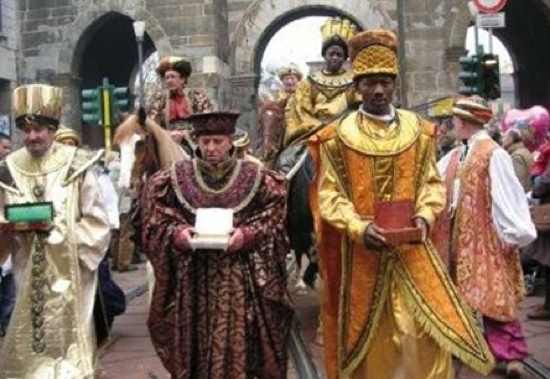
What you are celebrating: The ‘shining forth’ or revelation of God to mankind in the person of Jesus Christ
Date celebrating: January 6th
This is the feast of the ‘shining forth’ and revelation of the Messiah. On January 6th which comes after the birth of Jesus you usually celebrate a feast called the Feast of Epiphany. This is a feast which is kind of like Christmas, or as some people call it ‘little Christmas.’ Since people are remembering the day that God was able to give us such a powerful man, Jesus, people are feasting for him on this day in order to show their appreciation for the Messiah. This is traditionally the day remembered as the one on which the Three Magi visited the baby Jesus. This feast day is widely celebrated (by believers and non alike) in Europe far more than the United States.
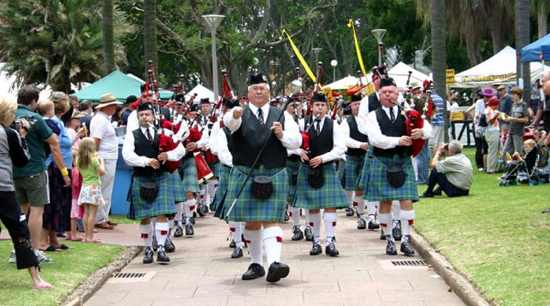
What you are celebrating: The Feast of the Patron Saint of Scotland
Date Celebrated: 30 November
This is a feast day that is primarily celebrated in Scotland as it is also Scotland’s national day (because St Andrew is the Patron Saint of Scotland). Believer and unbeliever alike enjoy this day off school and work every year. But the festival isn’t found in Scotland only – in Barbados it is also a national day and in many parts of Eastern Europe there are a variety of superstitions and practices commonly performed on this feast or the night before (for good luck or to ward off bad luck).
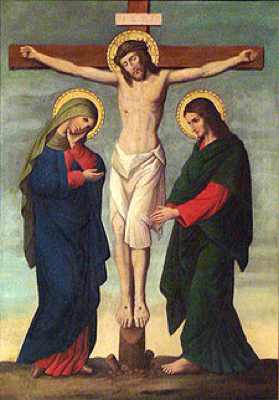
What you are celebrating: Crucifixion of Jesus
Date Celebrated: Friday before Easter – a public holiday in many Western countries.
Good Friday is the day that we remember the death of Jesus on the cross. It is – in Christian terms – the most important feast day of the year as it is considered to be a memorial of the day that Christ died to forgive all the sins of man. This feast day manifests itself in many countries as a public holiday. It precedes the more well-known (and delicious) feast day of Easter Sunday. In New Zealand this is one of only two days in the year where it is strictly illegal to trade (except for essential businesses).
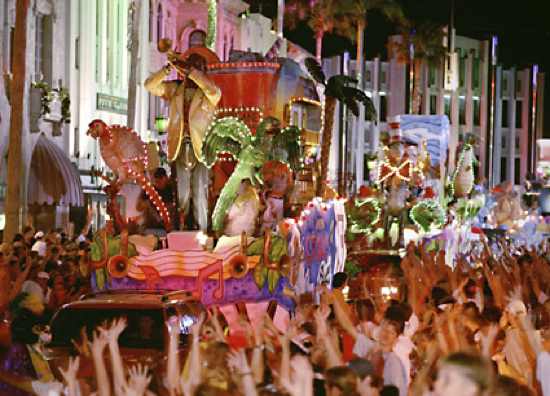
What you are celebrating: The last day of good eating
Date Celebrated: Day before Lent begins (movable feast)
Mardi Gras (meaning “fat Tuesday”) is the day before Ash Wednesday – the day that Lent begins. Traditionally Lent is a period of around six weeks in which believers fast by eating less food and not eating meat or fat. In preparation for this period of austerity people would have a blow out feast the night before (hence “fat” Tuesday). In modern times this has, of course, come to be a far grander event than just a slap up meal with music, partying, and the likes.

What you are celebrating: The feast of St Patrick
Date Celebrated: 17 March
The popularity of this feast day in America is undoubtedly due to the influence of Irish immigrants for whom St Patrick is the patron saint. St Patrick’s day festivities include copious amounts of alcohol (often colored green), sometimes dressing up, and lots of very bad imitations of an Irish accent. It is probably one of the most loved feast days on this list!

What you are celebrating: A third-century Roman saint
Date Celebrated: February 14
Saint Valentine (of whom very little is known) was a Bishop who was martyred in Rome in the early days of the Church. The feast was first celebrated in 496 AD but it was not until the high Middle Ages that people began to associate the Saint (and consequently his feast day) with love – courtly at first then just regular old love later. Saint Valentine was martyred on the Via Flaminia for demanding the destruction of pagan idols. The ways you have probably celebrated this day is by giving or receiving (hopefully) a “valentine” – a card with romantic symbols.

What you are celebrating: Resurrection of Jesus
Date Celebrated: First Sunday after the full moon after March 21
This is the day in which Jesus’ resurrection from the dead is remembered. Because it is such a happy occasion and it also marks the end of six weeks of Lent, it is associated with excess consumption of foods – hence the tradition of giving and getting chocolate treats. It is celebrated in Church with a highly ornate and extravagant Mass which begins with an altar laid bare and ends with it covered with candles, flowers, incense, and whatnot. Whether you believe in it or not, chances are you have given or received an Easter egg or chocolate gift of some sort at least once in your life at Easter.

What you are celebrating: The eve of All Saints
Date Celebrated: 31 October
Halloween is the eve of all hallows – the day in which the Church remembers all the dead – known and unknown – who have attained a place in heaven (in other words: saints). It is a national public holiday in many traditionally Catholic nations. All Hallows is followed by All Souls day in which the unfortunates who are stuck in purgatory are remembered and prayed for – so in fact traditionally this is like a three day feast – the eve of all hallows, all hallows, and all souls. Now don’t tell me you have never participated in a Halloween celebration one way or another!

What you are celebrating: The birth of Jesus
Date Celebrated: December 24/25
Of course Christmas is the celebration of the birth of Christ. It is a public holiday in most Western nations and is probably the most widely celebrated holiday on this list which still retains some of its original meaning and symbology – such as the giving of religious themed cards (whereas the most popular item here – St Patrick’s day is almost completely bereft of any symbology of St Patrick himself). Most people give gifts on this feast day – with the gifts being opened in the very early hours of the morning (for those who attend Midnight Mass) or upon waking on Christmas day.

What you are celebrating: The Lord’s Day
Date Celebrated: Every Sunday
Every Sunday you have a day off is a feast day in memory of God. Most of us know that this is the day on which God rested after creating the physical universe but what you may not know is that it was because of Christianity that Sunday was chosen for this feast; traditionally that day was considered to be Saturday. The day was chosen because it was considered the day that Christ rose from the dead and so, by having Sunday as the Lord’s day both the Father and Son were remembered. The first time that Sunday became the official weekly feast of the Lord’s day was 7 March 321 AD when Roman Emperor Constantine I declared it so: “On the venerable Day of the Sun let the magistrates and people residing in cities rest, and let all workshops be closed. In the country, however, persons engaged in agriculture may freely and lawfully continue their pursuits; because it often happens that another day is not so suitable for grain-sowing or vine-planting; lest by neglecting the proper moment for such operations the bounty of heaven should be lost.” In the decree above we can see an interesting point – the law against work was reasonably appended with a caveat to allow people to work if it was impractical to rest. It has also traditionally been acceptable to work in an endeavor which is not physically taxing, such as studying or office work.






